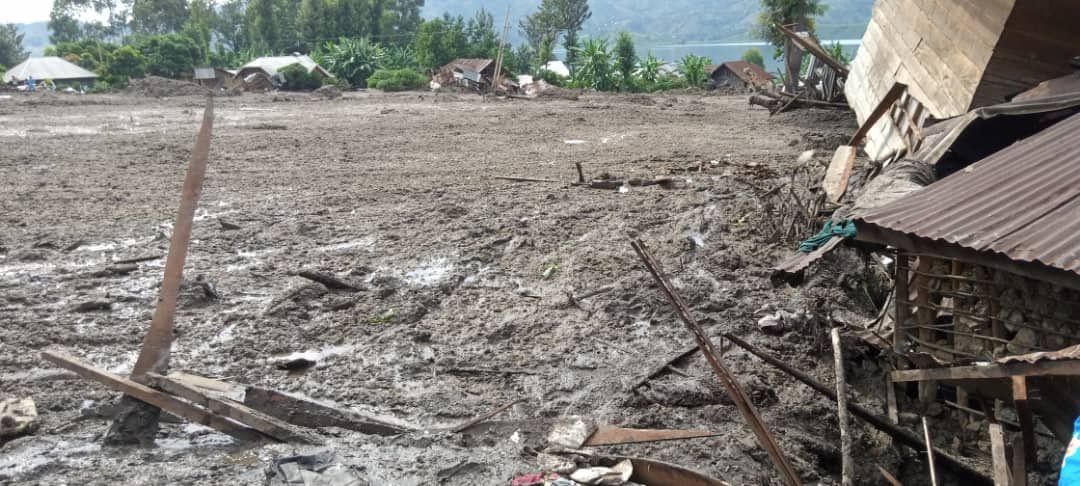GloFAS Bulletin Article, June 2023

Rwanda and Democratic Republic of the Congo, May 2023
Heavy rainfall, floods, mudslides and landslides resulted in significant loss of life, displacement of families and widespread damage to infrastructure in Rwanda and eastern areas of the Democratic Republic of the Congo in early May 2023.
Rwanda
Floods and landslides occurred in the Western, Northern and Southern provinces of Rwanda following heavy rainfall in early May 2023.
In a statement of 03 May, the President of the Republic of Rwanda, Paul Kagame, expressed his solidarity with those affected and wounded, as well as his deepest condolences to the families of the victims of the tragic events. The president confirmed that 127 people had lost their lives.
Over the following days rescue and relief operations continued in the districts of Rubavu, Ngororero, Nyabihu, Rutsiro, Karongi, Gakenke, Burera, Musanze and Nyamagabe.
Damage to homes left hundreds of families displaced, including around 370 households in Karongi District. Rwanda National Police reported that numerous roads were impassable due to flooding and landslide debris.
The Rwanda Meteorology Agency had warned earlier that above-average rainfall was expected in many parts of the country during the first 10 days of May.
Democratic Republic of the Congo
The government of the province of South Kivu in the Democratic Republic of the Congo reported heavy rains on 04 May 2023 caused several rivers to overflow, triggering massive floods and mudslides in numerous villages in the Kalehe Territory. The town of Kalehe sits on the shore of Lake Kivu, around 50 km (30 miles) across the lake from the Western Province of Rwanda.
Flooding caused widespread destruction in the villages of Bushushu and Nyamukubi. The United Nations Office for the Coordination of Humanitarian Affairs (UN OCHA) said the villages of Luzira and Chabondo were also affected.
As of 06 May, UN OCHA reported around 1,200 houses were completely destroyed and a further 1,800 damaged, leaving 3,000 households homeless.
UN OCHA said the affected communities were in dire need of assistance. “Immediate needs include supplies to ensure dignified and safe burials, medical care for those affected and injured, food assistance for all affected, and shelter for people who have lost their homes and are living in public places. Ongoing assessments by humanitarian actors will help determine medium and long-term needs,” UN OCHA said.
The Government announced 08 May 2023 to be a day of national mourning.
Affected areas were buried under deep mud and flood debris. Search and Rescue (SAR) operations continued for over 2 weeks. The Red Cross announced SAR were finally called off on 22 May.
The United Nations Children's Fund (UNICEF) reported on 27 May 2023 that more than 443 fatalities had been confirmed in the disaster and more than 2,536 people were still missing.
Images:

Image 1: Flood and mudslide damage in the Kalehe Territory of South Kivu Province, Democratic Republic of the Congo in early May 2023. Credit: MONUSCO

Image 2: Flood and mudslide damage in the Kalehe Territory of South Kivu Province, Democratic Republic of the Congo in early May 2023. Credit: MONUSCO
Source: Floodlist
By Richard Davies June 28, 2023, 1:41 p.m.
